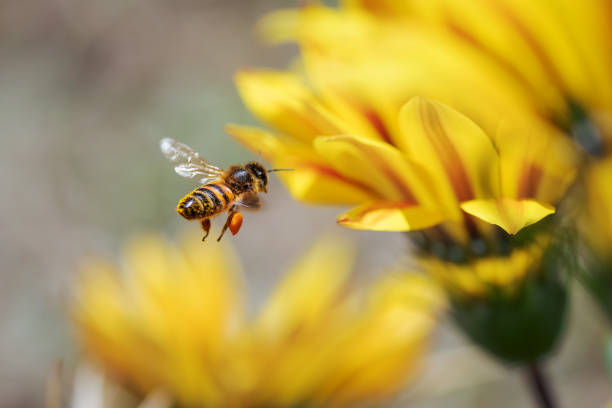Unleashing the Potential of Urban Beekeeping: A Golden Buzz for City Dwellers
Introduction: Urban beekeeping is a phenomenon gaining traction worldwide, offering both ecological benefits and a fascinating hobby for city dwellers. This article delves into the history of this increasingly popular trend, current developments, and its potential impact on urban ecosystems and economies.

Urban Beekeeping: A Historical Perspective
The practice of urban beekeeping doesn’t have a lengthy history as its rural counterpart. It only gained popularity in the late 20th century when people started recognizing the ecological and economic benefits of these buzzing pollinators. Initially, the practice was met with skepticism and regulatory restrictions due to concerns about public safety. However, as more people became educated about the behavior and benefits of honeybees, acceptance grew. In 2010, New York City legalized beekeeping, a significant milestone that sparked similar changes in other cities worldwide.
The Sweet Buzz of the Present
Presently, urban beekeeping is a growing trend in cities from London to San Francisco. Not only does it offer a unique hobby for urban dwellers, but it also contributes significantly to local ecology by promoting pollination and biodiversity. Moreover, urban honeybees are found to be healthier and more productive than their rural counterparts, possibly due to the diverse range of flora available in cities.
The Nectar of the Market
Urban beekeeping has also led to the rise of a niche market for urban honey, with price tags often higher than traditional honey due to its unique flavor profiles. The cost of setting up and maintaining an urban beehive varies, ranging from a few hundred to several thousand dollars, depending on the scale. As public interest grows, the potential for urban honey to make a significant market impact is high, particularly with the rise of artisanal and sustainable products.
The Future Hive
As we look to the future, urban beekeeping holds immense potential. Currently, research is being conducted on how these tiny pollinators can help monitor air quality, offering a novel approach to urban environmental surveillance. There are also ambitions to make urban beekeeping a more mainstream hobby, encouraging more city dwellers to create rooftop and balcony hives.
A Sweet Conclusion
Urban beekeeping is more than a mere hobby; it’s a testament to how we can harmoniously coexist with nature, even within concrete jungles. The future of urban beekeeping looks promising, with potential for further ecological and economic benefits. As we continue to explore this golden buzz, it’s clear that these tiny creatures hold immense potential for our urban landscapes.
In conclusion, urban beekeeping is a significant trend that’s reshaping our cities and our relationship with nature. It’s a sweet reminder that even in the heart of a bustling city, we can find a connection to the natural world and contribute to its preservation.




